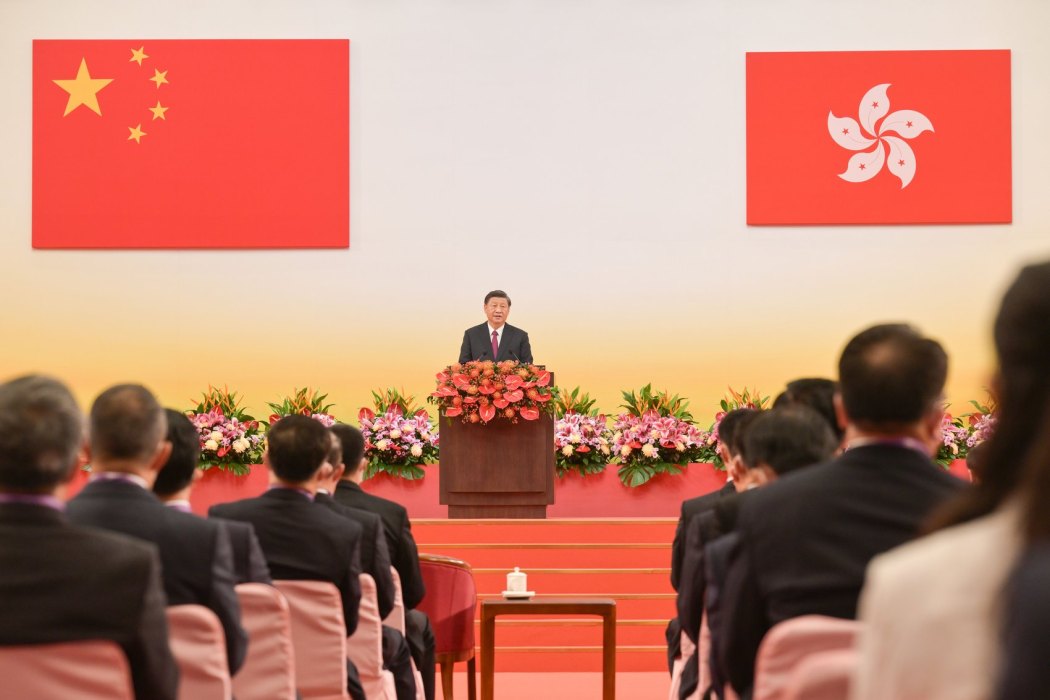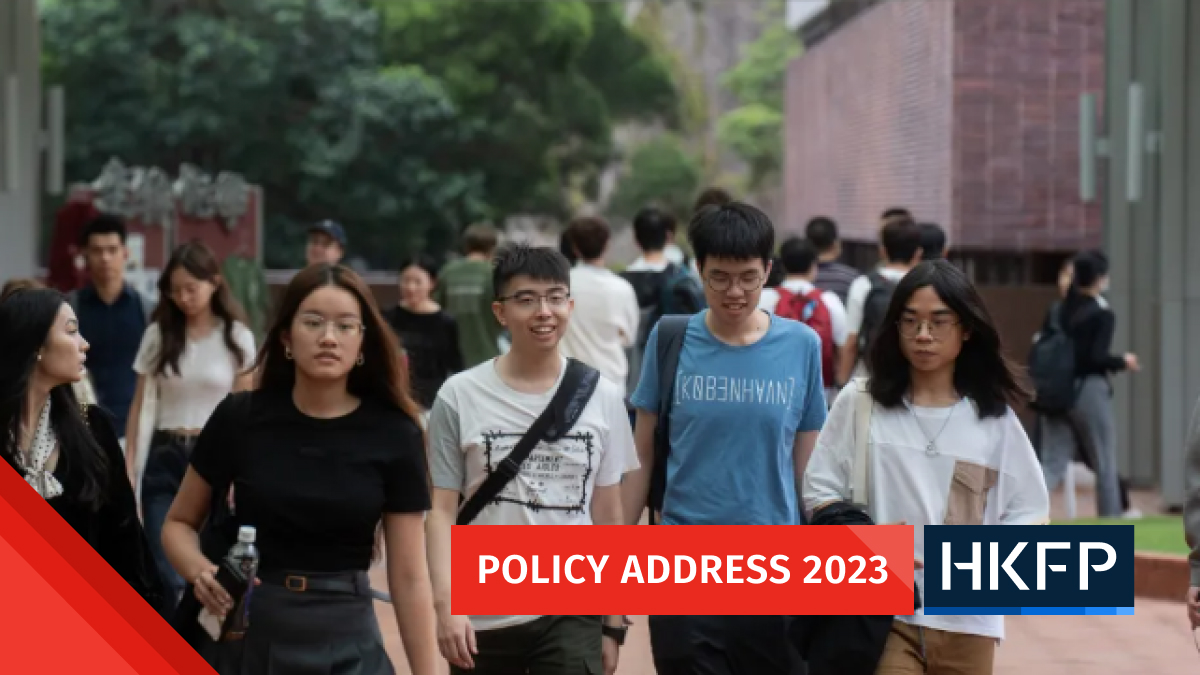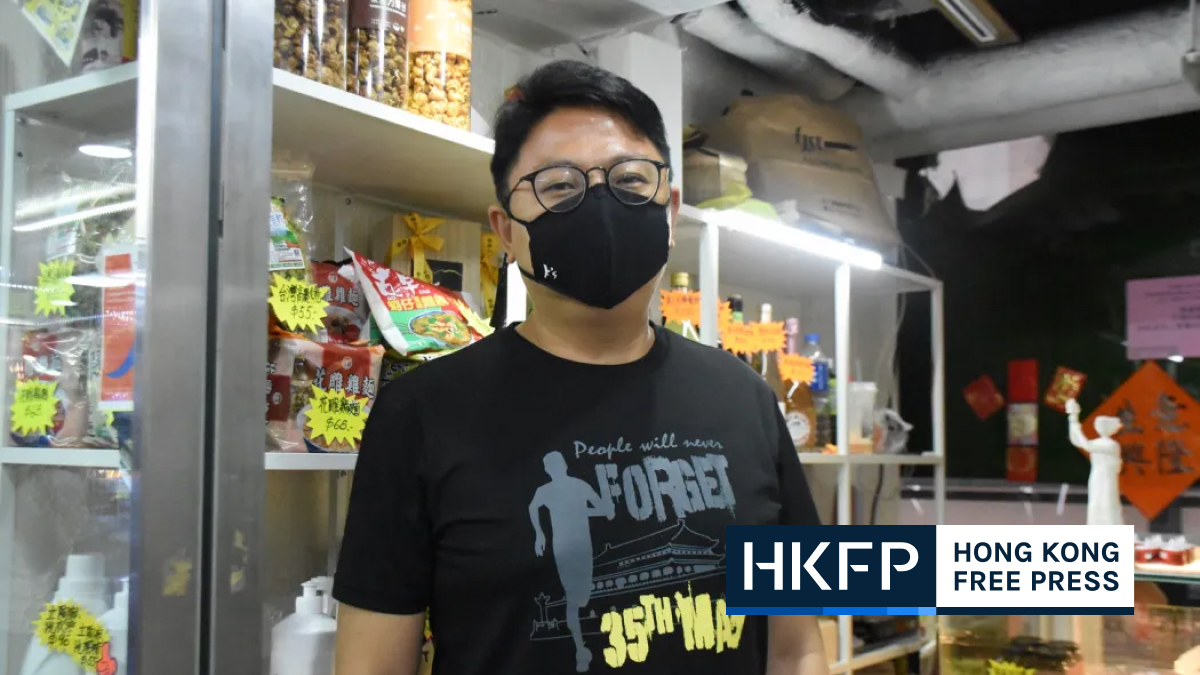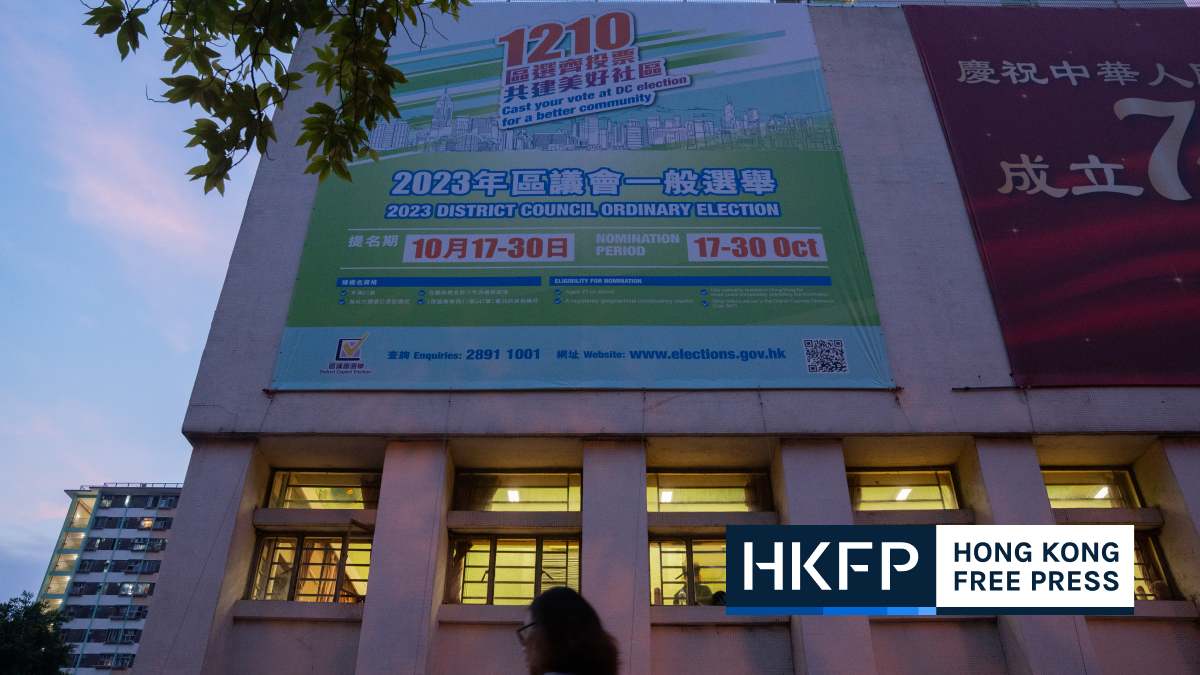Hong Kong’s government and pro-Beijing organisations have so far held more than 60 seminars to extol the virtues of Chinese leader Xi Jinping’s speech on July 1, when he visited the city and officiated at the swearing-in of its new administration.

The theme of all of these events has been to “learn about, promote and implement the spirit of President Xi Jinping’s important speech.” The audiences have ranged from civil servants to consular staff to kindergarten students.

By checking news reports and government press statements, HKFP found at least 61 seminars or talks were held between July 2 and July 25. Some were initiated by the government and were led by Chief Executive John Lee, such as the four sessions organised by the Civil Service Bureau.
More than 1,270 civil servants of various ranks took part.

Dozens of other events were arranged by the likes of Beijing’s Liaison Office in Hong Kong; the Office of the Commissioner of the Ministry of Foreign Affairs; local district offices; and statutory bodies and schools, where children as young as kindergarten age and primary pupils attended.
Transfer of mainland’s political culture
Political scientist Ivan Choy said Hong Kong would be following in the footsteps of the mainland more closely.
“I believe this is a gradual transfer of the mainland’s political culture to Hong Kong. Hong Kong was not used to having to learn about a leader’s speech. That [practice] has a long history in the mainland though,” Choy told HKFP. “I believe this will also make Hong Kong follow more closely the mainland’s political path and direction.”

Choy, who teaches politics at the Chinese University of Hong Kong, said the stance of the pro-establishment camp had changed over the years since the days when some said Hong Kong should not be a “political city” and should focus on economic development.
“What’s clear is that they probably didn’t want that many protests and opposition in the past. Now there [are] no such activities, they started doing something new, such as political learning. Those who used to criticise Hong Kong for being too political now support these political learning sessions,” Choy said.
The scholar said the next round of “political learning” may come when the 20th National Congress of the Chinese Communist Party begins sometime later this year. It is widely expected to approve a third term for leader Xi Jinping.
‘Ground-breaking’ speech
Political commentator Derek Yuen said such “political learning” had become a norm since Xi took the helm in 2013. But he added that the dozens of seminars held in Hong Kong this month had not accurately interpreted the speech.

Yuen called Xi’s remarks “ground-breaking.” For example, he said, the Chinese leader “basically asked Hong Kong to reopen international borders” and promised that the common law system would remain until 2047 – but Hong Kong officials and politicians were slow to pick that up.
“Xi Jinping basically said as long as you embrace the One Country, Two Systems wholeheartedly, you can have any belief. As long as you obey the law, and love Hong Kong, you don’t need to be patriotic, you don’t need to embrace socialism. But the pro-establishment camp didn’t dare to interpret that,” Yuen said.

When asked how Hong Kong could convince the wider world that it was not just another mainland city while still adopting the culture of “political learning,” Yuen said Hong Kong was seen as requiring guidance from Beijing, adding that the Carrie Lam administration did a bad job in following instructions.
But Xi’s speech was also intended for the international community, he said.
“I think his intention was to maintain Hong Kong’s status as an international financial centre… I think he meant to say something that would please the international community, but that has not materialised.”
Yuen said he believed Hong Kong politicians and the pro-establishment camp needed to be less conservative in interpreting Xi’s comments, and help push his agenda.
Support HKFP | Policies & Ethics | Error/typo? | Contact Us | Newsletter | Transparency & Annual Report | Apps
Help safeguard press freedom & keep HKFP free for all readers by supporting our team

LATEST FROM HKFP
HKFP has an impartial stance, transparent funding, and balanced coverage guided by an Ethics Code and Corrections Policy.
Support press freedom & help us surpass 1,000 monthly Patrons: 100% independent, governed by an ethics code & not-for-profit.







